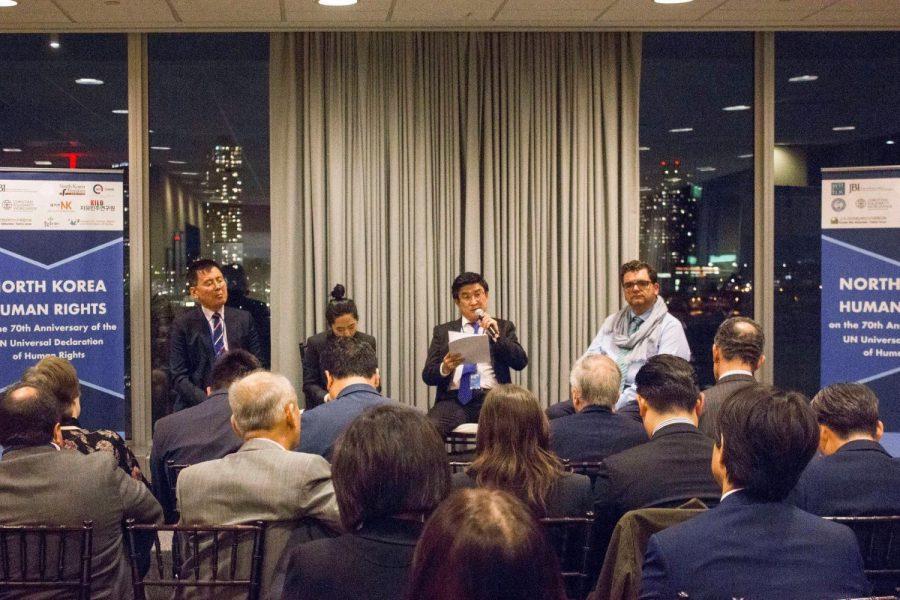During his time as a laborer under the North Korean regime, Ro Hee Chang lived in near torturous conditions. He was forced to sleep in cramped, hot spaces in Pyongyang, the Middle East and Russia, where he ultimately defected. On Friday, he spoke at NYU about his journey.
“Overseas work of one person is valued at $3,000, but workers receive about $60, with the remaining going to the party,” Chang said. “This only serves to fill the bellies of Worker Party, [and is no different] than a prison camp. No matter how much they work, the workers are left with nothing after.”
Speaking through a translator, Chang explained his personal experience living under the North Korean regime in the past decade. He lived in Pyongyang before being sent as an overseas laborer to the Middle East and then to Russia, from which he defected in 2014.
Overseas laborers are a source of revenue for North Korea; they typically work in terrible conditions for years while receiving very little pay. Although the United Nations attempted to forbid countries from distributing work permits to North Koreans, Russia is still issuing them as of 2018. This year, 700 work permits have been issued from Russia to North Koreans as a minimum estimate from Russia’s Interior Ministry records, found by the Wall Street Journal.
Chang explained his difficult situation. While working in the Middle East, shifts were often from 5 a.m. to 11 a.m. Ten to 20 people would be crammed into small living spaces, which Chang described as “unbearable in the heat.” Injuries, illness and death were common, and workers often saw nothing for their efforts.
In a particularly tragic anecdote, Chang described witnessing a man take his own life after working in these painful conditions.
“The man had sold his entire wealth to support his family, but then he came and saw the misery of others was to become his future,” Chang said. “He was involved in a big accident, and heard that some compensation would be given to those who died. That’s when he decided the best solution would be to take his own life and save his family. [The North Korean government] said he had earned too little, and did not send anything back. Even while he was dying, they said that it was a waste of the party’s resources to pay for his treatment. This was 2013 in St. Petersburg, Russia.”
Chang finished the story, leaving a silence over the room.
“I sincerely hope that everyone in this room, and the world, comes to know that North Korean overseas workers are living under truly nightmarish conditions,” Chang said.
Around 50 people came to the Silver Center to hear Chang speak. Audience members found the talk to be surprising and informative, and appreciated the opportunity to gain rare insight into the situation in North Korea from someone with first-hand experience.
“I’m from Georgia and Georgia was part of the Soviet Union, so the questions of freedom concern me,” Stern sophomore Nana Goguadze said. “I took the Russia and the Soviet Union class last semester, so now I’m expanding my knowledge to understand how in the 21st century, communists can still operate.”
At the end of the event, Chang hoped he had raised awareness about life in North Korea and had encouraged others to do the same.
“We beseech you, people of NYU, tell your friends and family that this is a reality,” Chang said. “That this is something of the 21st century. If you want to help, just help people be aware.”
A version of this article appeared in the Monday, Oct. 29 edition. Email Sarah John at [email protected].


























































































































































